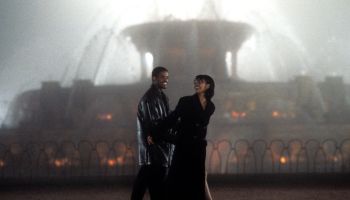Little Known Black History Fact: Richard Arrington
Little Known Black History Fact: Richard Arrington, Jr. - Page 2
While there, Arrington wanted to increase city hiring of people of color and award lucrative contracts to minority-owned businesses in an attempt to balance the playing field. The local business community balked at his plans, which were eventually vetoed, but it put the city on notice. Arrington got involved in a case where a Black suspect was shot while in police custody, but ultimately failed in any legal recourse.
However, the incident forced city officials to look at changing police procedures. In 1979, Harrington’s bid for mayor was also a run-off election.
After galvanizing the Black community over the cop shooting case, it was seen as Arrington’s moment to challenge incumbent David Vann. After the shooting of 20-year-old Bonita Carter, who was unarmed, Arrington challenged Vann and campaigned heavily in Black neighborhoods. He also got the support of white business owners during this stretch, promising to bring development and change to the city.
Arrington’s campaign was ultimately successful, leading the charge for the “New Birmingham” and moving past some of the city’s ugly racist past. Arrington continued to work hard for the people, creating jobs and boosting a staggering economy. Even when controversy hit Arrington in a series of corruption and bribery accusations in 1992, both Black and white citizens rallied around him.
Arrington retired from the mayor’s post in 1999, working as a visiting professor at the University of Alabama at Birmingham until 2003. Today, Arrington maintains a lower profile but is still a resonate force in the city.
Like BlackAmericaWeb.com on Facebook. Follow us on Twitter.















